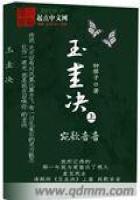She sent the memorials to M. de Choiseul, who thought them very maliciously and very cleverly written. Madame de Pompadour and he had a long conference as to the reply that was to be given to the person by whom those disclosures were made. What I was commissioned to say was this: that the place of Receiver-General was at present too important, and would occasion too much surprise and speculation; that it would not do to go beyond a place worth fifteen thousand to twenty thousand francs a year; that they had no desire to pry into the King's secrets; and that his correspondence ought not to be communicated to any one; that this did not apply to papers like those of which I was the bearer, which might fall into his hands; that he would confer an obligation by communicating them, in order that blows aimed in the dark, and directed by malignity and imposture, might be parried. The answer was respectful and proper, in what related to the King; it was, however, calculated to counteract the schemes of the Comte de Broglie, by ****** M. de Choiseul acquainted with his attacks, and with the nature of the weapons he employed. It was from the Count that he received statements relating to the war and to the navy; but he had no communication with him concerning foreign affairs, which the Count, as it was said, transacted immediately with the King.
The Duc de Choiseul got the man who spoke to me recommended to the Controller-General, without his appearing in the business; he had the place which was agreed upon, and the hope of a still better, and he entrusted to me the King's correspondence, which I told him I should not mention to Madame de Pompadour, according to her injunctions. He sent several memorials to M. de Choiseul, containing accusations of him, addressed to the King. This timely information enabled him to refute them triumphantly.
The King was very fond of having little private correspondences, very often unknown to Madame de Pompadour: she knew, however, of the existence of some, for he passed part of his mornings in writing to his family, to the King of Spain, to Cardinal Tencin, to the Abbe de Broglie, and also to some obscure persons. "It is, doubtless, from such people as these,"said she to me, one day, "that the King learns expressions which perfectly surprise me. For instance, he said to me yesterday, when he saw a man pass with an old coat on, 'il y a la un habit bien examine.'
He once said to me, when he meant to express that a thing was probable, 'il y a gros'; I am told this is a saying of the common people, meaning, 'il y a gros a parier'." I took the liberty to say, "But is it not more likely from his young ladies at the Parc, that he learns these elegant expressions? "She laughed, and said, "You are right; 'il y a gros'."The King, however, used these expressions designedly, and with a laugh.
The King knew a great many anecdotes, and there were people enough who furnished him with such as were likely to mortify the self-love of others. One day, at Choisy, he went into a room where some people were employed about embroidered furniture, to see how they were going on; and looking out of the window, he saw at the end of a long avenue two men in the Choisy uniform. "Who are those two noblemen?" said he. Madame de Pompadour took up her glass, and said, "They are the Duc d'Aumont, and ------" "Ah!" said the King; "the Duc d'Aumont's grandfather would be greatly astonished if he could see his grandson arm in arm with the grandson of his valet de chambre, L------, in a dress which may be called a patent of nobility!" He went on to tell Madame de Pompadour a long history, to prove the truth of what he said. The King went out to accompany her into the garden; and, soon after, Quesnay and M. de Marigny came in. I spoke with contempt of some one who was very fond of money.
At this the Doctor laughed, and said, "I had a curious dream last night:













